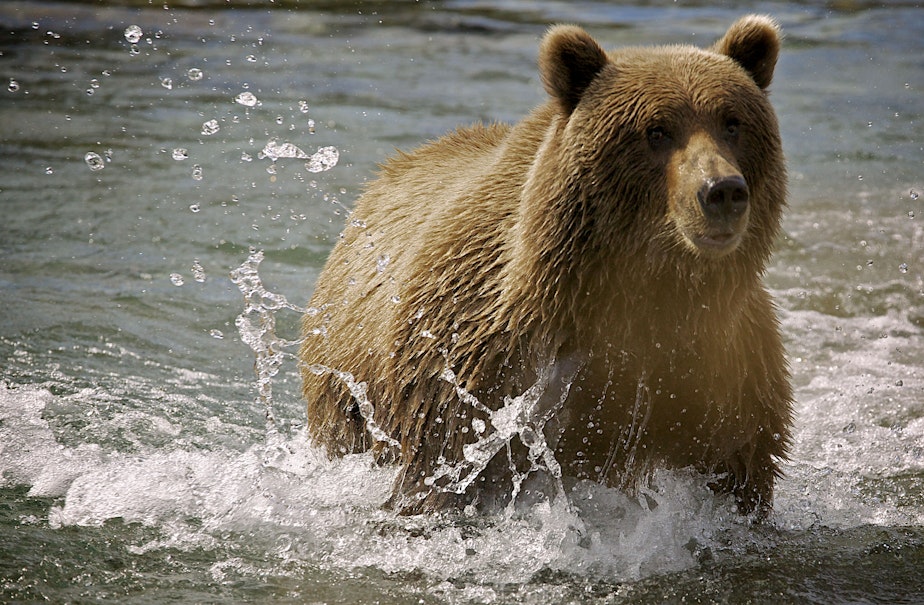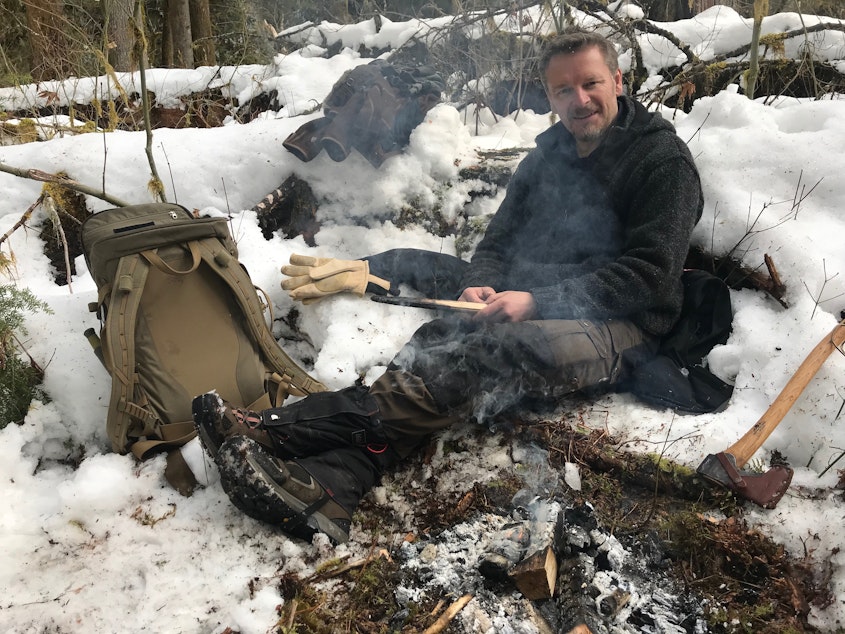The ‘ghost bears’ of Washington state

I asked him if I could go out into the field with him. Two weeks later, the bear biologist calls me up, tells me it’s time – let’s go see a bear.
He picked me up, but instead of turning left to go into the forest, he takes a right towards town. We weren’t going to the woods, we were going to his research site – the city dump.

That night, over 30 years ago, I knew what my life would be. I told myself, “I’m going to study bears.”
And not just any bears, that night eventually led me to search out a special group: the ghost bears of the North Cascades in Washington state.
In 1967, a man left his cabin, hiked deep into the mountains and shot a grizzly. It was the last legal kill here, and as it turns out, one of the last remaining brown bears.
There used to be hundreds in the North Cascades, but European settlers hunted them almost to extinction. It’s an area about 10,000 square miles, but there are fewer than 20 grizzlies – probably less, maybe just one or two. We don’t know for sure. That’s why people call them ghost bears.
Grizzly bears have been on the endangered species list since 1975. They’ve made a pretty good return in around Yellowstone, but in the Cascades it hasn’t been the same story. They have been hammered so hard historically they haven’t bounced back.
Sponsored

I learned early on that grizzlies in the Cascades are up against two things. It’s not biology and ecology, but politics and perceptions.
I think the first thing I need to do to save grizzlies is to share what I know about them, make them more familiar and change the perception.
The politics portion is another animal.
Sponsored
THE WILD is a production of KUOW in Seattle in partnership with Chris Morgan Wildlife and The UPROAR Fund. It is produced by Matt Martin and edited by Jim Gates. It is hosted, produced and written by Chris Morgan. Fact checking by Apryle Craig. Our theme music is by Michael Parker. Produced for the web by Kara McDermott.
Explore where we have gone to report on this season of THE WILD. You can zoom, move around and click on the icons for more tidbits:





